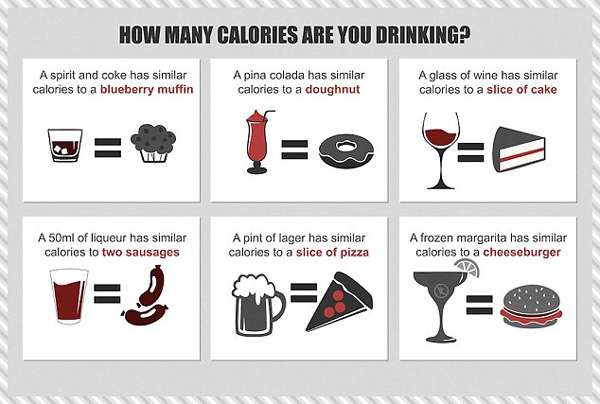Are you curious about the impact of alcohol consumption on weight loss? Look no further! In this article, we will explore the relationship between alcohol and weight loss, shedding light on whether that nightly glass of wine could be hindering your progress. Understanding the effects of alcohol on your body and metabolism will empower you to make informed decisions when it comes to reaching your weight loss goals. So, let’s raise our glasses and dig into the fascinating world of alcohol and weight loss!
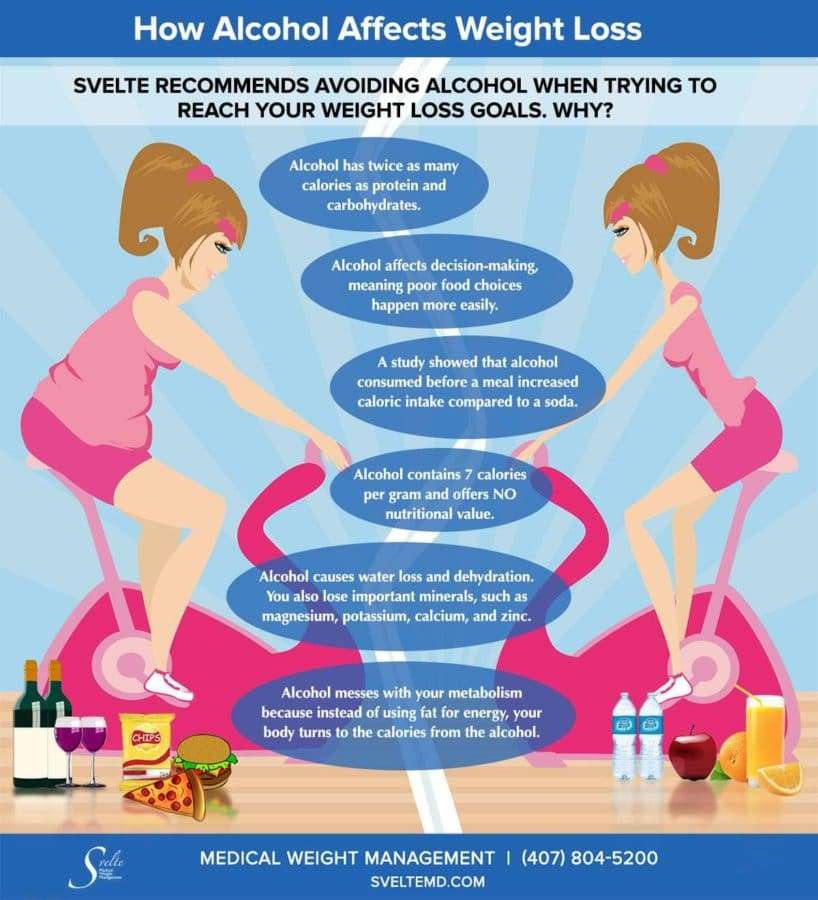
The caloric content of alcohol
Alcohol’s high calorie density
Alcohol is known for its high calorie content. In fact, it contains almost double the calories per gram compared to carbohydrates and proteins. While carbohydrates and proteins provide 4 calories per gram, alcohol provides 7 calories per gram. This means that even small amounts of alcoholic beverages can contribute significantly to your daily caloric intake. It’s important to be aware of the caloric content of different alcoholic drinks, as they can vary greatly. For example, a pint of beer can contain around 200-300 calories, while a glass of wine can have around 120-150 calories.
Empty calories in alcoholic beverages
Another factor to consider is that alcohol is often referred to as providing “empty calories.” This means that it doesn’t provide any essential nutrients or vitamins, and instead, these calories are considered to be devoid of any nutritional value. Unlike other food and drink choices, alcohol doesn’t provide any beneficial substances for your body. So, while you may be consuming calories, you’re not providing your body with any valuable nutrients it needs to function optimally.
Alcohol’s impact on overall calorie intake
The calorie content of alcohol can have a significant impact on your overall daily caloric intake. It’s important to note that excessive alcohol consumption can lead to weight gain, as the extra calories from alcohol add up quickly. Moreover, when you consume alcohol, it tends to increase your appetite and can lead to overeating or making poor food choices. This combination of increased caloric intake from alcohol itself along with potential overeating can sabotage your weight loss efforts. It’s essential to be mindful of your alcohol consumption and its impact on your overall calorie intake if weight loss is your goal.
Alcohol’s effect on metabolism
Alcohol and metabolic rate
Alcohol consumption can affect your metabolic rate, which is the rate at which your body burns calories. Research has shown that alcohol can temporarily increase your metabolic rate, leading to a higher calorie burn. However, this increased metabolic rate is short-lived, and in the long term, alcohol can lead to a decrease in your metabolic rate. This can result in a slower calorie burn and potentially hinder weight loss efforts.
Alcohol’s impact on fat burning
In addition to its effect on metabolic rate, alcohol can also interfere with your body’s ability to burn fat effectively. When you consume alcohol, your liver prioritizes metabolizing alcohol over other substances, such as fat. This means that while alcohol is being processed in your body, the burning of fat is slowed down or even temporarily halted. As a result, consuming alcohol can inhibit your body’s ability to burn stored fat, making weight loss more challenging.
Alcohol-induced insulin resistance
Alcohol consumption has also been linked to insulin resistance, which can have negative effects on weight loss. Insulin is a hormone that plays a crucial role in regulating blood sugar levels. When you consume alcohol, it can disrupt insulin signaling and lead to insulin resistance. Insulin resistance makes it more difficult for your body to utilize glucose effectively, potentially leading to higher blood sugar levels and increased fat storage. This can not only hinder weight loss but also increase the risk of developing conditions such as type 2 diabetes.
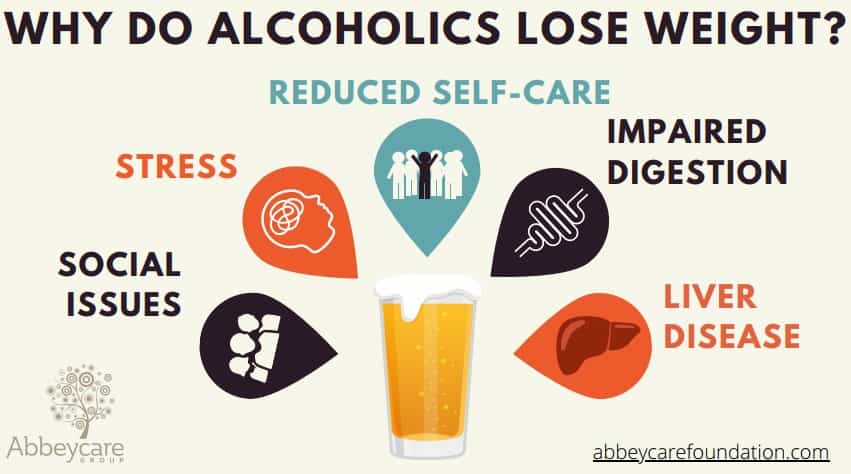
Alcohol’s impact on nutrient absorption
Alcohol inhibits nutrient absorption
Another way alcohol can affect weight loss is by inhibiting the absorption of essential nutrients in your body. Alcohol can damage the cells lining the digestive tract, which are responsible for absorbing nutrients from the food you eat. When these cells are impaired, they can’t effectively absorb vitamins, minerals, and other important nutrients. This can result in nutrient deficiencies and compromise your overall health and well-being.
Reduced absorption of essential vitamins and minerals
Of particular concern is the reduced absorption of vitamins and minerals that are essential for various bodily functions. For example, alcohol can hinder the absorption of vitamin B12, which plays a crucial role in energy production and the formation of red blood cells. Additionally, alcohol can affect the absorption of minerals like calcium and magnesium, which are necessary for bone health and muscle function. The impaired absorption of these nutrients can negatively impact your weight loss efforts by compromising your overall health and vitality.
Impaired digestion and absorption of macronutrients
Alcohol can also impair the digestion and absorption of macronutrients, such as proteins, carbohydrates, and fats. When alcohol is present in your digestive system, it can interfere with the breakdown of these macronutrients into smaller molecules that can be absorbed by your body. As a result, the nutrients from the food you consume may not be adequately digested and absorbed, leading to suboptimal nutrient utilization. This can contribute to weight gain or hinder weight loss, as your body may not be efficiently utilizing the nutrients it needs for energy and other vital functions.
Alcohol and appetite control
Alcohol’s effect on appetite regulation
One of the significant ways alcohol can impact weight loss is through its effect on appetite regulation. When consumed, alcohol can increase your appetite and make you more likely to overeat. It can stimulate the release of certain hormones, such as ghrelin, that signal hunger to your brain. This can result in increased food cravings and a tendency to consume more calories than you would have otherwise. Consequently, alcohol’s effect on appetite control can undermine your weight loss efforts if not managed consciously.
Increased food consumption due to alcohol
In addition to stimulating your appetite, alcohol can also lead to increased food consumption. When under the influence of alcohol, inhibitions can be lowered, leading to decreased self-control and a greater likelihood of indulging in unhealthy food choices. This can be particularly problematic if you’re trying to adhere to a calorie-restricted diet or make healthier choices overall. Being mindful of the way alcohol can influence your food consumption is crucial to maintaining a balanced diet and achieving weight loss goals.
Disruption of hunger and fullness signals
Furthermore, alcohol can disrupt the signals that tell your brain when you’re hungry or full. It can interfere with the normal functioning of hormones involved in regulating hunger, such as leptin and insulin. This disruption can lead to a distorted perception of hunger and fullness, making it harder to recognize when you’ve consumed enough food. As a result, you may end up eating more than your body needs, which can impede weight loss progress. Being aware of these disruptions in hunger and fullness signals when consuming alcohol can help you make more mindful choices and avoid overeating.
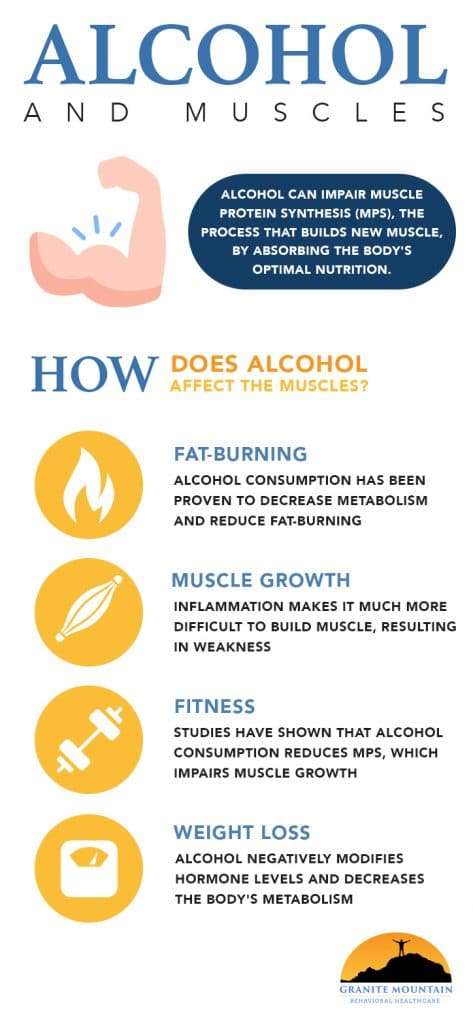
Alcohol’s influence on food choices
Alcohol’s impact on food preferences
Alcohol consumption can also influence your food preferences and cravings. Research has shown that alcohol can enhance the desire for high-fat and high-sugar foods. This means that when you consume alcohol, you may be more likely to crave unhealthy foods that are calorie-dense and low in essential nutrients. These cravings can be difficult to resist, leading to poor food choices and potential weight gain. It’s important to be cautious of the influence that alcohol can have on your food preferences and strive to make healthier choices even when under its influence.
Alcohol-induced cravings for unhealthy foods
Alcohol can activate the reward centers in your brain, leading to increased cravings for unhealthy foods. This is because alcohol can increase the release of dopamine, a neurotransmitter associated with pleasure and reward. The elevated dopamine levels can make you more prone to seeking out food that provides instant gratification, often in the form of high-calorie and nutrient-poor options. Recognizing and managing these cravings when consuming alcohol is crucial for maintaining a balanced diet and supporting your weight loss goals.
Decreased self-control and poor food choices
When you consume alcohol, your inhibitions can be lowered, leading to decreased self-control and a higher likelihood of making poor food choices. Alcohol impairs cognitive function, making it more challenging to make rational decisions, particularly regarding food. As a result, you may find yourself giving in to cravings, indulging in unhealthy foods, or consuming larger portions than you would have otherwise. Being aware of this potential decrease in self-control and planning ahead can help you stay on track with your weight loss journey even when alcohol is present.
Alcohol’s effect on sleep quality
Disrupted sleep patterns due to alcohol
Another factor that can impact weight loss is the effect of alcohol on sleep quality. While alcohol may initially make you feel drowsy and facilitate falling asleep, it can disrupt your sleep patterns throughout the night. Alcohol interferes with the normal sleep cycle and can lead to more fragmented and less restful sleep. This can leave you feeling tired and groggy the next day, affecting your energy levels and motivation to engage in physical activity. Poor sleep quality can also disrupt important hormone balance, such as growth hormone and leptin, which play a role in regulating metabolism and appetite.
Impaired restorative sleep
Additionally, alcohol can interfere with the restorative aspects of sleep. During sleep, your body undergoes various processes to repair tissues, consolidate memories, and regulate hormone production. Alcohol can disrupt these processes, leading to less efficient recovery and reduced overall well-being. This can hinder weight loss efforts, as adequate restorative sleep is crucial for proper metabolic function and maintaining a healthy weight.
Sleep deprivation and weight gain
Furthermore, alcohol-induced sleep disturbances can contribute to weight gain. When you’re sleep-deprived, your body’s hunger and fullness signals can become dysregulated, leading to increased appetite and cravings for high-calorie foods. Additionally, sleep deprivation has been shown to disrupt the balance of hormones that control hunger and satiety, such as ghrelin and leptin. This imbalance can lead to overeating and make it more challenging to stick to a calorie-controlled diet. Taking into account the impact of alcohol on sleep quality and prioritizing restful sleep can support your weight loss journey.
Alcohol and physical performance
Impaired athletic performance
Regular alcohol consumption can have a negative impact on athletic performance and hinder progress towards weight loss goals. Alcohol is a diuretic, meaning it increases urine production and can lead to dehydration. Dehydration can impair physical performance, as it can lead to decreased energy, muscle cramps, and reduced endurance. Additionally, alcohol can affect coordination, reaction time, and balance, increasing the risk of injury. For athletes or individuals engaging in regular physical activity, it’s important to be mindful of the potential performance-sabotaging effects of alcohol.
Muscle recovery and alcohol consumption
Alcohol consumption can also interfere with muscle recovery after exercise. When you engage in physical activity, particularly resistance training, your muscles undergo microscopic damage that needs to be repaired for strength and growth. Alcohol can disrupt the normal process of muscle repair and regeneration, potentially delaying recovery and hindering muscle growth. This can impede progress towards weight loss goals, as muscle is metabolically active tissue that contributes to overall calorie burn and metabolic rate.
Poor exercise adherence and alcohol
In addition to its physiological effects, alcohol can also impact exercise adherence. When consumed excessively or too frequently, alcohol can impair your motivation, increase fatigue, and decrease your desire to engage in physical activity. This can lead to decreased consistency in your exercise routine and hinder your weight loss efforts. It’s important to strike a balance between enjoying social activities involving alcohol and maintaining a commitment to regular exercise for optimal weight loss results.
Alcohol’s impact on hormonal balance
Alcohol’s effect on hormone production and regulation
Alcohol consumption can disrupt hormonal balance in your body. Hormones play a crucial role in regulating various bodily functions, including metabolism, appetite, and fat storage. Alcohol can interfere with hormone production, signaling, and regulation, leading to imbalances that can hinder weight loss. It can disrupt the delicate balance of hormones such as insulin, leptin, ghrelin, and cortisol, which are all involved in energy metabolism and appetite regulation.
Altered estrogen and testosterone levels
Alcohol consumption has been associated with alterations in estrogen and testosterone levels. Estrogen, primarily found in higher levels in females, plays a role in fat storage and distribution. Excessive alcohol consumption can lead to increased levels of estrogen, potentially contributing to fat accumulation, particularly around the abdomen. On the other hand, alcohol can decrease testosterone levels, which can negatively impact muscle growth, metabolism, and fat burning. These hormonal imbalances can make weight loss more challenging and impact body composition.
Increased cortisol production due to alcohol
Cortisol, often referred to as the “stress hormone,” is released by the body in response to stress. Alcohol consumption can trigger an increase in cortisol production. Excessive or chronic alcohol consumption can lead to consistently elevated cortisol levels, which can have detrimental effects on weight loss. High cortisol levels can promote fat storage, particularly in the abdominal area, and increase appetite. Managing stress levels and avoiding excessive alcohol consumption can support hormonal balance and weight loss efforts.
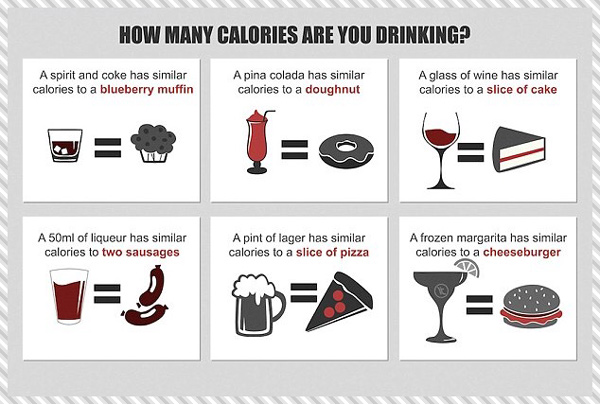
Moderate alcohol consumption and weight loss
Definitions of moderate alcohol consumption
While excessive alcohol consumption can negatively impact weight loss, moderate alcohol consumption may not have the same detrimental effects. Moderate alcohol consumption is typically defined as up to one drink per day for women and up to two drinks per day for men. It’s important to note that these recommendations consider a standard drink, which varies depending on the type of alcohol. For example, a standard drink of beer is typically 12 ounces, while a standard drink of wine is around 5 ounces.
Potential benefits of moderate alcohol intake
Some studies suggest that moderate alcohol intake may have potential health benefits, such as a reduced risk of heart disease. However, it’s crucial to consider these potential benefits in the context of overall lifestyle choices and individual health status. While moderate alcohol consumption may not have a significant impact on weight loss efforts, it’s essential to be mindful of the potential caloric content and make informed choices about your alcohol intake. Prioritizing nutrient-dense foods and maintaining a balanced diet should be the primary focus when aiming for weight loss.
Strategies for minimizing alcohol’s impact on weight loss
If you choose to consume alcohol while pursuing weight loss, there are strategies you can implement to minimize its impact. Firstly, be mindful of portion sizes and opt for lower-calorie alcoholic beverages. For example, choosing light beer, wine spritzers, or mixing spirits with low-calorie mixers can help reduce overall caloric intake. Secondly, consider spacing out your alcohol consumption and allowing for alcohol-free days to balance your overall calorie intake. Finally, focus on building a solid foundation of healthy habits, including regular exercise, proper nutrition, and sufficient sleep, to mitigate the potential effects of alcohol on weight loss.
Alcohol addiction and weight loss challenges
Alcohol’s impact on motivation and adherence
For individuals struggling with alcohol addiction, weight loss can present unique challenges. Alcohol addiction can profoundly impact motivation and adherence to a weight loss plan. The presence of alcohol addiction can often overshadow other health goals, making it difficult to prioritize weight loss efforts. In such cases, seeking professional help may be necessary to address the underlying issue of alcohol dependence and establish a foundation for successful weight loss.
Negative psychological effects of alcohol addiction
Alcohol addiction can also have negative psychological effects that affect weight loss. The psychological toll of addiction, including feelings of guilt, shame, or low self-esteem, can impact motivation and self-efficacy. These negative emotions may lead to emotional eating or using food as a coping mechanism, hindering weight loss progress. Addressing the psychological aspects of alcohol addiction through therapy, support groups, or counseling can provide valuable tools to navigate the challenges of weight loss.
Seeking professional help for alcohol dependence
If you’re struggling with alcohol addiction, seeking professional help is crucial for both your overall well-being and weight loss journey. Alcohol dependence is a complex issue that often requires specialized treatment and support. Reach out to healthcare professionals, addiction specialists, or support groups that can provide guidance and personalized strategies to address alcohol dependence. By addressing the root cause of addiction, you can create a solid foundation for successful weight loss and long-term health.
In conclusion, alcohol consumption can have various effects on weight loss and overall health. Understanding how alcohol impacts calorie intake, metabolism, nutrient absorption, appetite control, food choices, sleep quality, physical performance, hormonal balance, and addiction is essential for reaching your weight loss goals. With mindful consumption, moderation, and a balanced lifestyle, you can navigate the potential challenges and work towards achieving your desired weight loss outcomes while enjoying the occasional drink.
